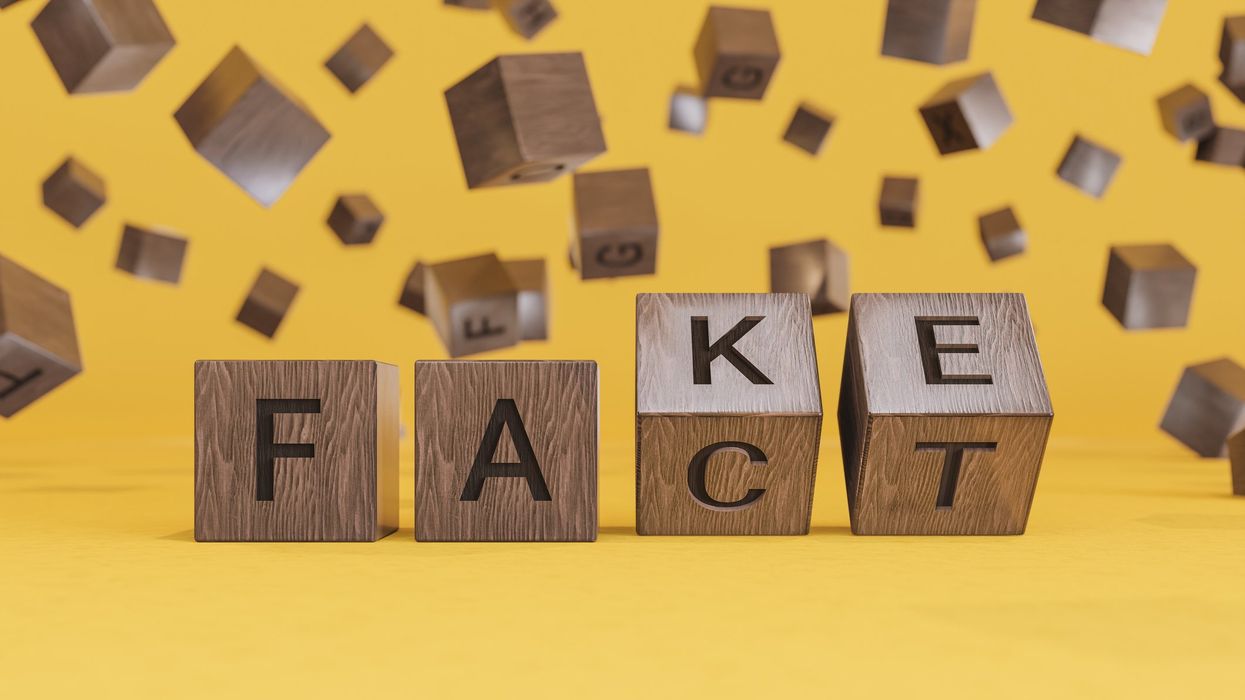Truth matters. You wouldn’t know that from watching the president address Congress earlier this month. The assault on truth since January has been breathtaking. The removal of data from government websites, the elevation of science deniers to positions in charge of scientific policy, and the advancement of health policy that flies in the face of scientific evidence are only the tip of the iceberg. We are watching a disaster in the making: Our leaders are all falling in line with a program that prioritizes politics and power over American success. But, we ignore the truth at our own peril—reality has a way of getting our attention even if we look the other way.
As a philosophy professor, my discipline’s attention to truth has never seemed more relevant than today. Although, there may be disagreement about the ultimate nature of truth, even the most minimal theory agrees that truth requires alignment with the way the world is. It is neither negotiable nor unimportant. Devaluing the importance of truth is a fool’s game, and it is incompatible with American success. It makes us weak and vulnerable; epidemics, deaths, and unrest will follow.
What has made us so successful? Some point to our democratic system of government and the freedom that it has sustained. Some will pick out the scientific and technological advances that form the backbone of our economy, advances that have ranged from cures for diseases to the development of the automobile, the internet, and artificial intelligence. Also important is the elevation of the individual, and the individual rights enshrined in our constitution. And then there is our educational system, the envy of the world, at least until now. At the root of all that is best about America is a core value—truth.
A functioning system of democracy requires trust: If those in power do not speak the truth there is no basis for trust, and if there is no basis for trust, we abdicate the ground for our freedom. People must trust that their votes will count, that their officials will perform their duties in the service of their nation and not for personal gain, and that the system of checks and balances will not be subverted. Indeed, our freedom is shored up by free speech laws that ensure transparency. As the visual metaphor suggests, transparency allows us to see the truth. The same can be said for a capitalist economy: once trust is lost in the system, once graft becomes rampant, and once the currency cannot be trusted to hold its value, the system collapses.
Science is the search for the truth about the natural world, and its success is predicated on following the facts where they lead. Not all truths are convenient, and some are downright frightening, but scientific facts cannot be massaged or legislated for our own purposes. It is only by recognizing the facts for what they are that we can make intelligent decisions about how to move forward, that we can build buildings that do not crumble, and medicines that work. Lying about the facts or erasing knowledge undermines science and our success.
The foundations of morality, whether religious or secular, also posit truth as a central value. The Ten Commandments clearly enjoin truth-telling: “Thou shalt not bear false witness against your neighbor.”
Rewriting history to mark Ukraine as the aggressor in the war that Russia instigated should be called out for what it is: a blatant example of bearing false witness, and on this view, a sin against God. But even those whose moral foundations are secular, recognize the centrality of truth to morality. For example, the development of moral character, the bedrock of Virtue Ethics, requires the consistent and deliberate exercise of truthful behavior until truth-telling becomes part of one’s moral fiber.
As Americans, we teach our children not to lie and tell them the story of George Washington and the cherry tree. Although apocryphal, the story illustrates the strong link between strength of character, commitment to truth, and American patriotism.
That’s ridiculous! You might say—isn’t truth a cudgel that the powerful wield to cement their interests?
This thinking might be where our present leaders go wrong, but to do so is to misunderstand the nature of truth, which depends on the way the world is, not what someone wants or asserts it to be. Truth is not opinion, nor is it mysterious or elusive. At its base is the simple notion of correspondence to the facts, and those facts can be empirically established and will exert their influence despite our wishes.
To be sure, sometimes the facts are complicated, and discerning them requires the expertise developed with training, which is why our educational system is fundamental to our success, and why scientific hypotheses are discussed in terms of degrees of certainty. But we should all be very clear: To assert falsehoods is to undermine all we stand for. To try to blur the lines between truth and lying is a common move in a fascist playbook. These exercises of power may often seem inconsequential, but make no mistake: they are aimed at destroying our values and ultimately our democracy.
Truth lies at the foundation of what has made America great, and every assault on truth eats away at that foundation. It is incumbent on all of us to stand up and decry every lie, to call out every act of censorship, to demand transparency, and to demand integrity from those who represent us. Once you give up on truth, you have given up on democracy.




















Trump & Hegseth gave Mark Kelly a huge 2028 gift